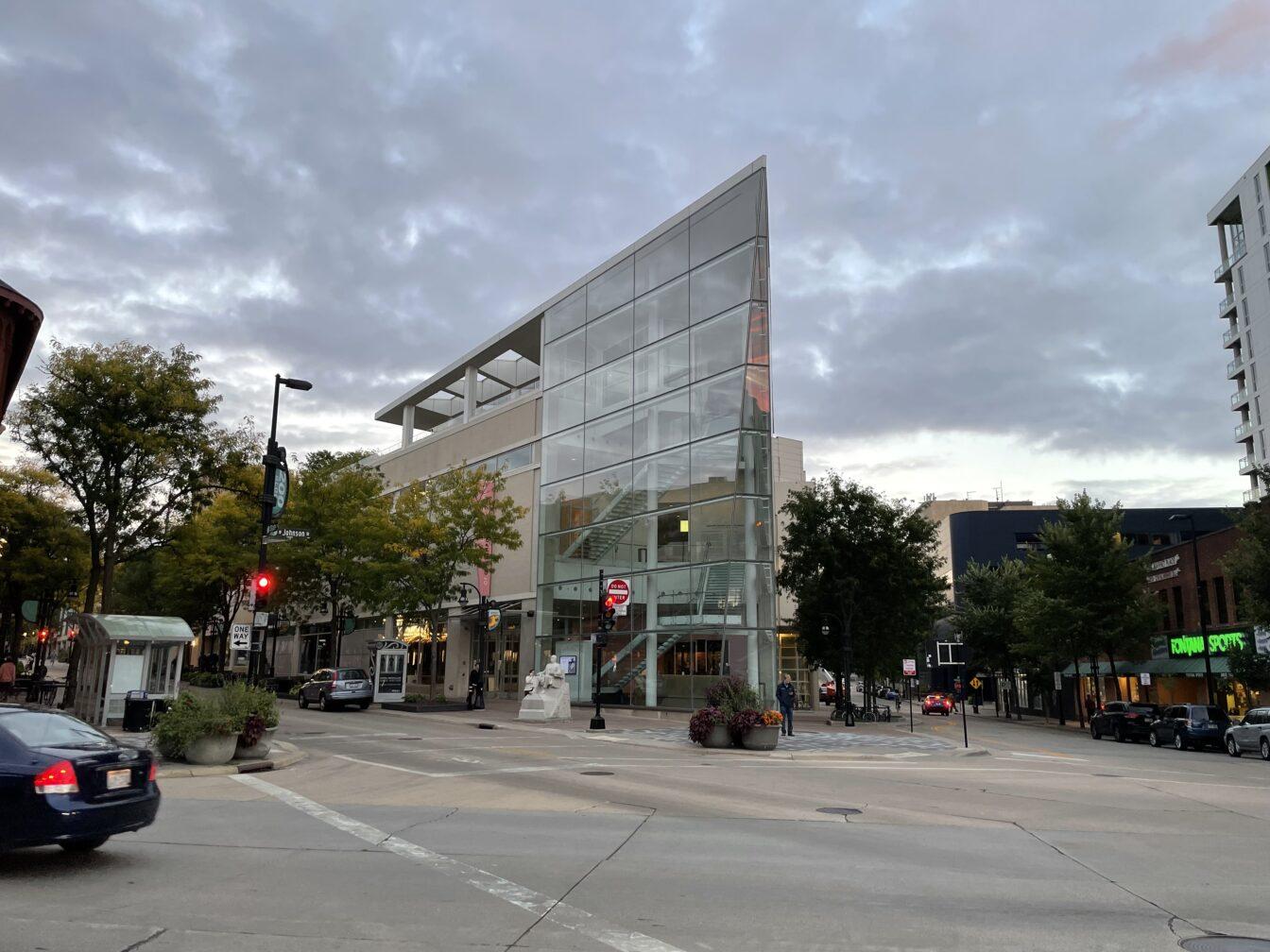Black artist Lilada Gee’s artwork was stolen and vandalized in June 2022 while being featured in an exhibit at the Madison Museum of Contemporary Art. Following the incident, Wisconsin-based artists, University of Wisconsin alumni, students and faculty are speaking out against the museum’s treatment of Gee and the other artists participating in the exhibit.
Gee’s art was part of the “Ain’t I a Woman” exhibition that sought to highlight the artwork of 23 Black women. MMoCA American Alliance of Museum Directors Intern Grace Ruo said the exhibit was designed to bring light to the work of these artists throughout various disciplines in Wisconsin.
The exhibit was announced in January 2022, with the intention of being out for display from April until October, according to MMoCA’s website. Despite the incident that occurred, the exhibit is still on display.
Following the vandalization and theft of Gee’s art, the MMoCA Executive Committee and Board of Trustees released a joint statement.
MMoCA Director Christina Brungardt contacted Gee, asking if the thieves would be able to keep her artwork — rather than contacting local authorities about the theft and vandalism, according to Ruo.
Following this incident, nearly half of the original artists pulled out of the exhibit, in solidarity with Gee. Madison-based artist and designer Ben Orozco said the artists and Gee are protesting the way in which the museum addressed the incident.
Ruo was surprised by the museum’s response toward the artists involved in the exhibit.
“I didn’t think that in 2022 I would be witnessing active whitewashing,” Ruo said.
Ruo called out the directors of MMoCA for refusing to display any empathy toward the artists involved in the exhibit. Since the original incident in June, there has been no dialogue between MMoCA leadership and the artists, according to Ruo.
Ruo said MMoCA was quick to make a list of demands to the Overture Center when a previous racist event occurred there.
But when MMoCA was forced to face racism on its own property, the leadership’s response fell short, Ruo said.
“They failed, and they are continuing to fail,” Ruo said.
MMoCA leadership avoided discussing the theft and vandalization with museum staff, according to Ruo. Employees were not informed about the theft or vandalization until the day before an article on the incident was set to publish. Ruo said Brungardt instructed employees not to respond if anyone asked them about the incident.
Following the publication, Ruo described the office as being very tense and the theft of Gee’s artwork was a taboo topic nobody talked about.
In a response to the situation, more than 50 UW alumni, students and faculty wrote a letter that was read and delivered at MMoCA in early September. Orozco, a longtime member of the Madison community, took part in the letter.
Orozco has worked closely with curators of the MMoCA as an exhibitor and has been present for the “Ain’t I a Woman” exhibit since its opening. Since that time, he has seen both the exhibit and the museum itself transform into something he never imagined.
Orozco said seeing the walls of the museum becoming bare as artists pulled out of the exhibit following the incident between Gee and MMoCA was a grave feeling.
Orozco joined the group of alumni, students and faculty who took part in the letter to send a clear message.
“We are watching the museum and their lack of action or direct response to the situations that are going on,” Orozco said.
Through the sharing of the letter, the group meant to communicate a list of demands to the museum, including financial restitution with property toward Gee, the termination of Brungardt, the promise of no retaliation and a commitment from the museum to work to meet the needs of the artists involved with the exhibit, according to Orozco.
As an artist himself, Orozco was passionate about speaking out against MMoCA because he hoped the museum would show they are actually listening to the community.
When asked about MMoCA’s response, Orozco said he felt disappointed over the lack of dialogue and openness both with the community and artists themselves on the part of the museum.
“I had a sense of disappointment but also the sense that there’s something going on in the background,” Orozco said. “I can tell there’s a culture shift. There’s something going on within the leadership of the museum and that’s why a lot of the letter was directed towards Christina Brungardt and the executive committee.”
Both Ruo and Orozcos’ experiences with MMoCA and their perspectives with how the museum handled the situation with Gee highlight the ways in which the museum has failed in the eyes of those in the community.
Ruo said the way in which the museum responded to Gee illustrates that their primary concern is to protect themselves from further scrutiny rather than supporting the artists they were meant to be giving a platform to.
Ruo said the “Ain’t I a Woman?” exhibit began as a platform meant to support Black women and their voices and experiences. But rather than supporting these Black women and the larger community, the museum chose silence.
“They could do so much better and they have the platform to do so much better, I don’t think I would see myself ever going back to the museum,” Ruo said.
Spokesperson for MMoCA Marni McEntee said the museum is holding on responding to media inquiries about the exhibit.
Editor’s Note: This article was updated to reflect that the MMoCA did respond to a request for an interview.
Editor’s Note: This article was updated to reflect that the MMoCA declined to comment on the exhibit.



